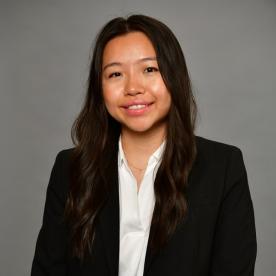
On September 19, 2023, the Authors Guild (a professional writers’ organization) and several individual authors (collectively, the Plaintiffs) filed a class action complaint against several OpenAI entities (the Defendants) in Authors Guild v OpenAI LP, S.D.N.Y., No. 1:23-cv-08292, alleging copyright infringement under the US Copyright Act.
The Plaintiffs, seeking to represent a class of professional fiction writers, alleged that the Defendants willfully copied the Plaintiffs’ works wholesale without permission or consideration. In addition, the Plaintiffs state that such copyrighted works were used to train large language models (LLMs), which underlie OpenAI’s consumer-facing chatbot application, ChatGPT.
In the complaint, the Plaintiffs state that OpenAI has previously admitted that it has “trained” its LLMs on “large, publicly available datasets that include copyrighted works”, and has admitted that if it refrained from using copyrighted works in its LLMs’ “training,” it would “lead to significant reductions in model quality.”
Furthermore, the Plaintiffs alleged that until recently, ChatGPT could be prompted to return quotations of text from copyrighted books, suggesting that the underlying LLM ingested these works in their entireties during its “training.” The Plaintiffs further state that OpenAI has been opaque about the source(s) of its datasets, which contain the Plaintiffs’ copyrighted works.
The complaint includes specific allegations relating to certain copyrighted works based on the Plaintiffs’ testing of ChatGPT to illustrate ways in which OpenAI’s LLM “training” has infringed the Plaintiffs’ copyrights and has injured or may injure the value of their works. The Plaintiffs further allege that “OpenAI has engaged in a systematic course of mass-scale copyright infringement that violates the rights of all working fiction writers and their copyright holders equally”.
The relief sought by the Plaintiffs includes: (i) class action certification; (ii) an injunction prohibiting the Defendants from infringing the Plaintiffs’ and class members’ copyrights, including enjoining the Defendants from using such copyrighted works in “training” their LLMs without express authorization; and (iii) an award of statutory damages up to $150,000 per infringed work, in the alternative to actual damages and profits, at the Plaintiffs’ election before final judgment.
Summary By: Steffi Tran
E-TIPS® ISSUE
Disclaimer: This Newsletter is intended to provide readers with general information on legal developments in the areas of e-commerce, information technology and intellectual property. It is not intended to be a complete statement of the law, nor is it intended to provide legal advice. No person should act or rely upon the information contained in this newsletter without seeking legal advice.
E-TIPS is a registered trade-mark of Deeth Williams Wall LLP.
